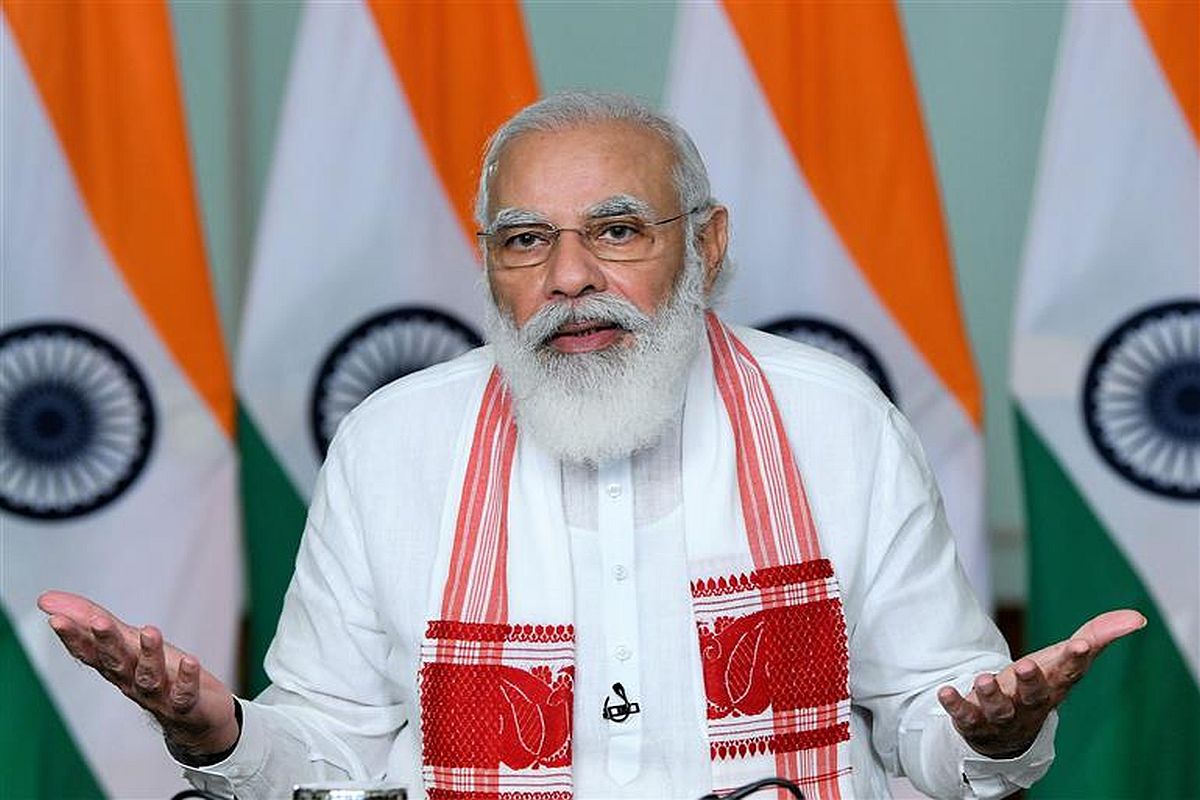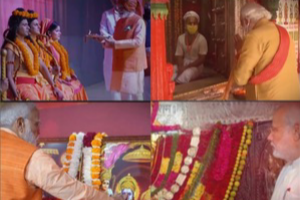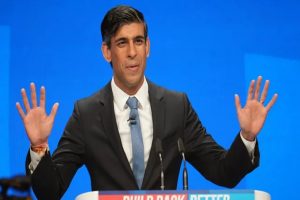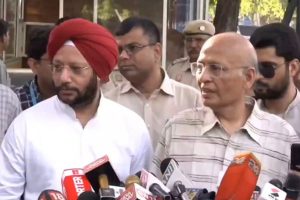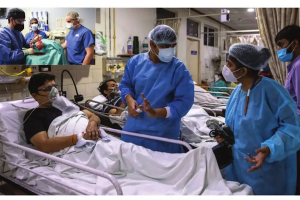The enigma that is Prime Minister Narendra Modi is impossible to understand unless of course, one has the time, energy and imagination to do so. Look at him as a politician, one would not find one similar either now or in the past. As a person, by standards anyone has come across, one would be hard pressed to escape confusion. I doubt if the best of psychologists can help one to find an answer. If one has known him from close and never reacted to his unusual reactions but dispassionately only looked for why every time, perhaps one might begin to know.
As is obvious to most, Modi believes in worship and his faith in the Paramatma is total. Yet he is by no means given to fatalism. Whatever will be will be, que sera sera is not for Modi. His dharma is that of a karmayogi. His karmabhoomi is the country. His one love is the country and that is the supreme one. Nothing else matters even when he has the opportunity to wander. In fact, he has no lasting attachment except to the country which, to restate, is also his only love.
It was not customary to say thank you in Gujarat. As a result, Modi did not acknowledge good work done with a formal thank you. His reasoning must be: if I live and work for the country and you happen to help, what great obligation are you creating and for whom? The Rashtriya Swayamsevak Sangh encourage their pracharaks and vistaraks to make contacts and keep in touch with people. If any family invites him to lunch, it is a welcome sign; the person has been liked. This builds up a relationship. Reciprocation is not necessary nor practical for a bachelor living a hostel. And saying thanks is not an Indian custom.
Once at Savarkundla in Saurashtra, Gujarat, I happened to be invited for lunch by a party worker. The little gathering was enjoyable; at the end I happened to say many thanks, as the Delhi habit generally is. The hosts’ face fell, and I being disturbed at the sight asked him why. His reply was your saying thanks means that when I come to Delhi I feel there is no need for you to ask me to your home for a meal. I felt sorry and embarrassed at what I did. After all I hail from that part of the country and should have known better.
On a bright morning in early 2001, we happened to be chatting briefly at the rear of the main building of the BJP office. I happened to mention to Narendrabhai that in my opinion, it was high time that he took the plunge into electoral politics. To which his reply was that I have been told to do so by the Sangh. I cannot ask for a ticket; that is the tradition. This statement drew my admiration to his sense of discipline as well his restraint in respecting the dastoor. When he did go to Gujrat to take over the chief ministership, it was on Advani’s instructions. It was evident even in those early days that Modi had enormous leadership potential. That, however, lent him no early advantage and his ride in politics was far from smooth. While his organizational capabilities and grasp of the nittygritty of political work was much in demand, his persona and spontaneous influence over the rank and file of the party was a niggling worry to the entrenched satrapy. Former chief minister of Gujarat, Keshubhai Patel made good use of Modi, though, to keep his arch-rival in state politics Shankersinh Vaghela down. Once Vaghela had been eased out from the BJP, Modi ceased to be Keshubhai’s favourite. Modi had outlived his utility for Patel. Keshubhai wasn’t content with merely sidelining Modi, though; he had him transferred to Delhi as organizing General Secretary of the BJP. This was no ordinary political transfer. Keshubhai had enforced a stipulation that if ever Modi visited his home state, he would not meet any politician or journalist and would confine himself only to personal matters. It was thus a veritable political vanvaas or exile for Modi. This was indeed a tough and unpleasant phase of Modi’s political life.
When I happened to be in the BJP office at Ahmedabad a couple of weeks later, I was escorted by Anandiben Patel ~ currently Governor of Uttar Pradesh ~ Dr Mayaben Kondani and five other ladies. They protested to me about Narendrabhai’s unfortunate situation and the grave injustice done to him in the form of exile from Gujarat. I conceded their point that Keshubhai’s move was unjust, but asked them whether they considered Ramchandra, the avatar of Vishnu, to be great, to which they replied in the affirmative. My next question was: would Ram have been so great if he had not been sent on his vanvaas or exile to the forest? No, was their answer. I then told them that Narendrabhai was undergoing a similar vanvaas! When Modi became the Chief Minister of Gujarat at the fag end of 2001, Anandiben Patel affirmed that she hadn’t forgotten my prediction about NaMo, as he had been popularly known.
Overall, what was noteworthy was that he did not arrive in Delhi when he knew that the Sangh Parivar was apprehensive if the Congress would be elected for a third time in 2014. Instead, he stuck to discipline and did not come until he was asked to do so by the Sarsanghchalak of the RSS after it was decided at the baithak in Goa that Modi would lead the campaign for 2014 general elections.This was the implicit signal that he would be the prime ministerial candidate.
The same ingrained discipline that was demonstrated when he bowed his head to the ground before climbing the steps to the parliament house. This was also his signal that he is not flattered by his victory, but that he was grateful to the Almighty at being given an opportunity to serve his first and only love, as its pradhan sewak. No wonder that he has ruled since for the sake of its people and the country and not for himself or his family. This is what Krishna taught in the course of the Mahabharata. Uncannily, he enabled the Pandavas and Yudhishthira to sit on the throne of Hastinapura, but never ever did he sit on any throne himself, nor did he promote his own community to do the same.
This selfless dedication must have helped Modi to achieve not only national acclaim but international fame too. We cannot forget that no Indian leader before him has addressed the British parliament. Nor has any leader been ever honoured by the British monarch by hosting an exclusive lunch for him.
Incidentally, the Prime Minister has also addressed the Australian Parliament as well as the US Congress, not to speak of the many world leaders he has made friends with. All this and more has helped India to attain heights unknown before.
The writer is an author, thinker and former Member of Parliament

